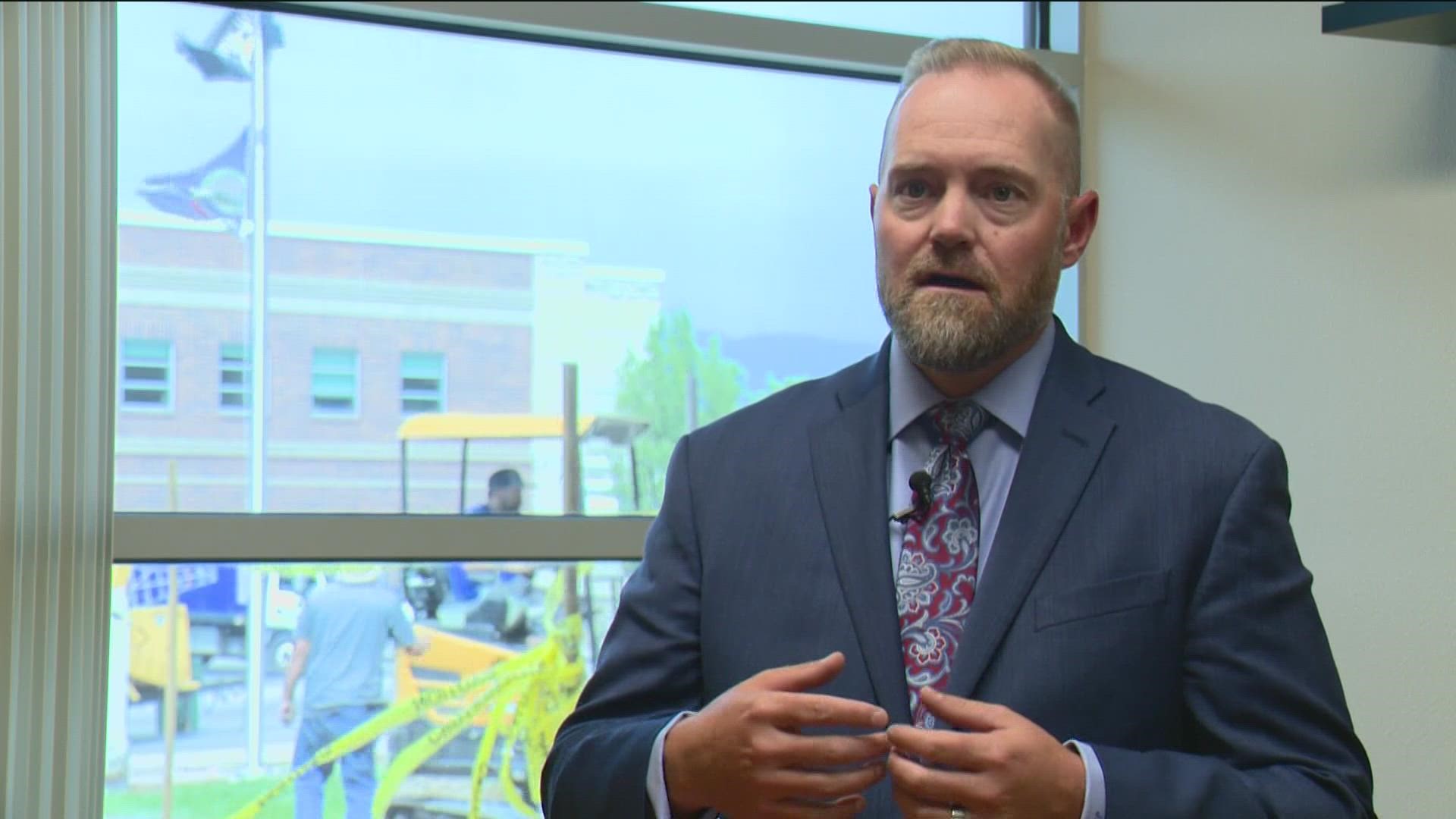BOISE, Idaho — Idaho Department of Correction (IDOC) will fund programs that may help non-violent criminal offenders with mental health and substance use disorders to avoid jail time.
IDOC's Pre-Prosecution Diversion Grant program will focus on treatment, rehabilitation and victim restoration rather than prosecution.
"We're trying to better understand where are the gaps in services that Idahoans need and can't get. Part of that too is how that intersects with the criminal justice system," said Josh Tewalt, the director of IDOC. "Where can we create off ramps for people who might have a mental illness or substance use disorder needs that they're not able to resolve or address on their own?"
Earlier in the year, the Idaho Behavioral Health Council (IBHC) created a strategic plan which included a list of proposals for increased behavioral health resources for the state. Idaho Governor Brad Little signed those recommendations into legislation with his Leading Idaho plan back in April.
Part of the IBHC's proposal is to help support and fund recovery centers for people with substance use or behavioral health disorders.
The department is offering $2.5 million worth of funding to state and local government agencies in partnership with providers of substance use disorder treatment or mental health treatment, like a local police department or a county prosecutor's office. According to Telwalt, the funding will create new models or programs within the entities to help people in need of treatment before a criminal offense.
"We see it a lot, where people come through our front door and you look at their case, and you see missed opportunities to try to put them on a different path or to get them moving in a different direction," Tewalt said.
CEO of Recovery United Monica Forbes said this grant program seems to be a step in the right direction.
"We're seeing a lot more effort towards providing those support services giving people a second chance to identify those factors that make a success out in the community," Forbes said. "Historically, it seems like in our community, the drugs are a lot more available than the behavioral health services are."
Recovery United helps operate multiple recovery programs throughout Idaho to help fill needs and gaps around communities.
To address behavioral health in the state, Forbes said preventative and community-based services need support and funding, especially when it comes to keeping non-violent offenders out of Idaho prisons.
"We know that 29% of the prison population in 2018 qualified with a serious and persistent mental illness," Forbes said. "A lot of those people reported that they were either untreated or under-treated prior to their engagement with criminal justice. If we can provide those services prior to, or as an alternative to going to prison, where we're just going to actually be exacerbating the problems and creating new situations and challenges that are going to exist with that."
Forbes said entities like drug courts, run by the county, can benefit from this funding. She added there are many drug courts leadership teams who have come to her to complain about the lack of capacity they have for their programs.
"It makes sense to try and do some preventative things and some diversionary programs and take the existing diversionary programs that we do have in Idaho and expand them," Forbes said.
Programs that can people avoid prison and give them a second chance are crucial for numerous reasons says Forbes. As someone who was in prison herself 15 years ago, she knows the challenges people face once they leave.
"Take something where you're already having challenges functioning on your day-to-day life and let's add in there, the fact that you now are going to feel like you have felon or criminal tattooed across your forehead and essential, you might as well," Forbes said. "Anytime you go to apply for housing or employment, that is going to come up. We know that 50% of those employment applications just go into the circular file, you're not even called for an interview."
She added one's sense of self-worth and self-esteem is compromised with a criminal record.
"It is embarrassing and shameful to have to admit that one has a criminal record," Forbes said. "It affects how you present yourself. Whether or not you advocate for yourself. Whether or not you apply for that apartment or that job. It has a negative impact on your ability to develop or sustain healthy relationships with healthy people for fear of judgment or ridicule."
She is glad to see positive changes within the prison systems in Idaho and hopes to see them continue.
"We've done a lot, but I think we can do more," Forbes said.
IDOC will pre-screen applications and then pass the applications to IBHC for further review. The IBHC’s Early Engagement Committee will make final award decisions. The IBHC consists of thirteen council members and includes stakeholders from State law enforcement, Health and Welfare, the judiciary, and the Idaho Legislature.
Watch more Local News:
See the latest news from around the Treasure Valley and the Gem State in our YouTube playlist:

